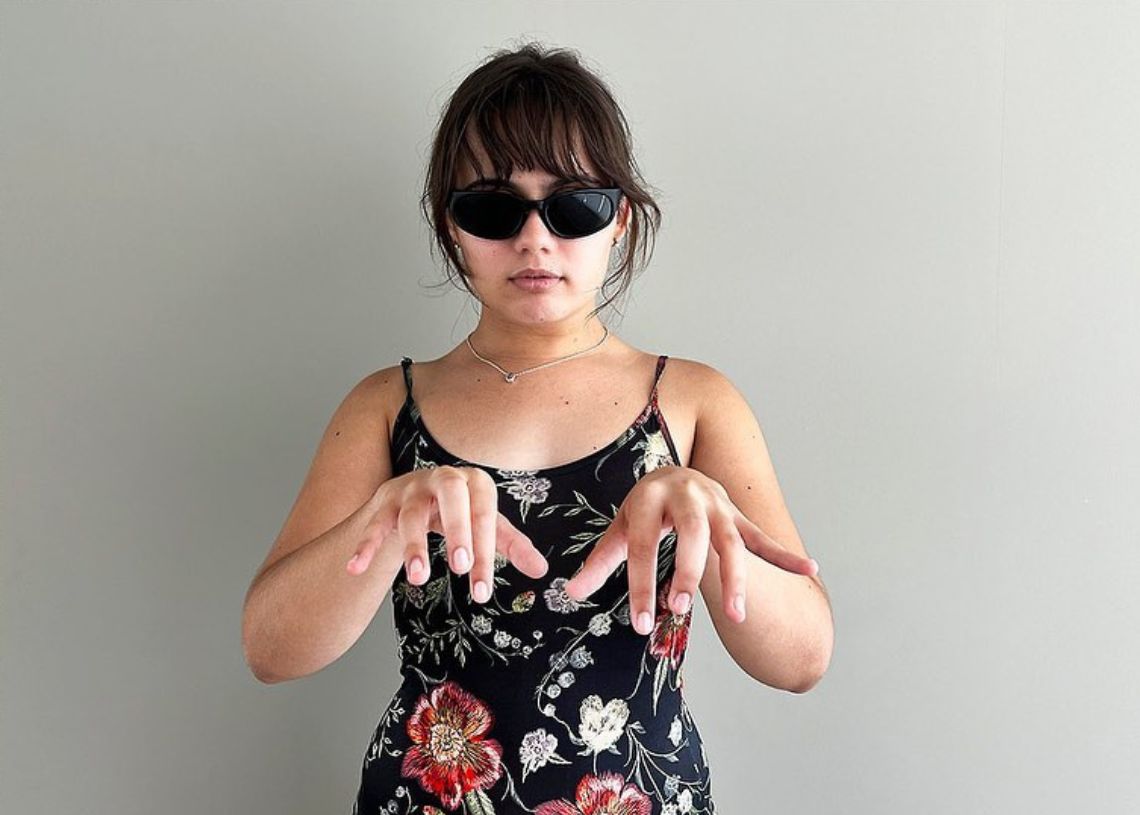Malva, this 21-year-old pianist in eternal training, aims to look up from the keyboard and think “out loud” about the artistic and musical world that surrounds her. Welcome to this space of musical reflections and delusions!
In Beyond a piano I want to tell you what being a musician means to me, from the most everyday anecdotes to the most special ones. I will try to put concerts, school events and the occasional random reflection into words, with the hope of doing my part in giving visibility to this beautiful Cuban artistic and cultural universe that we fight every day to preserve and enrich.
Since summer is over and routine has returned, I will begin with a topic as everyday for some as it is peculiar for others: How do musicians spend their holidays?
The answer is “a little like everyone else,” of course. We are no strangers to having fun, waking up a little later than usual, and spending time with our loved ones. However, there is one detail that often surprises (especially parents of children who have just entered a conservatory and are entering the lifestyle of playing an instrument): constant study. Yes, on vacation you study and, for musicians, there are several types of vacation (I clarify that it is my experience, my perception, which for my own colleagues can be as close as it is distant: each musician, as well as each person, is different ).
There are normal holidays. Recess and study probably the same number of hours as during school; but of course it’s much easier because there is more free time and work feels less.
Then there are vacations that are vacations only for the fact of not going to school, since, either by having an extracurricular event (concerts, summer courses, contests, rehearsals), by having to make more use of free time and being able to later fulfill plans that will not allow you to study or simply because you are an extremely disciplined person… you spend the day studying. And when I say “the day” I mean the legendary 8 hours. This is such a high merit that those who achieve it deserve the respect of all. Having the ability to study 8 hours in a day or, even worse, maintaining such a study pace for days is a feat that requires both endurance, planning and discipline. I don’t know if I recommend it; Over the years I have learned that study time is not as important as how it is used.
Even so, it is still common practice among musicians to turn hours of study into medals, and wear them with pride so that everyone can see how hard we work and how much commitment we have to our instrument.
Finally, there are the holidays that the rest of us know, in which we do not study. For an active musician they consist, if anything, of “one week, spread over the two months of recess. “One day here, two here.” They are very necessary; As much as we love what we do, taking distance and refreshing contributes to the eternal process of search and learning.
I imagine that some wonder why study on vacation. Isn’t the point of having a vacation supposed to be the opposite?
Maybe they think it has to do with the vocation of the artist, that we cannot be detached from our instrument for even a day; that the same study for us is a break and a delight that cannot be compared with any other activity…
Well no. The answer is one hundred percent practical, instrumental (pun intended) and not at all romantic. Through study we create a series of automated reflexes necessary for mastering the repertoire and, for an action to become a reflex, it requires repetition and time (hours of study). Studying an instrument is like exercising. If you stop for a long time, you start to lose muscles, you get rusty, and you even start to lose progress or, in other words, you go backwards. Of course, there are instruments for which this is more terrible. For example, wind players’ sound deteriorates after days of not playing. But I, who am a pianist, tell you that we, although we do not have that problem, have others.
Before going on vacation, the vast majority already have their new repertoire; pieces that should come out fluidly and (ideally) by heart for the following course. For that you have to study. There is no other option.
Developing instrumentalists cannot afford to spend a large number of days without playing our instrument. We would be losing valuable time in which to build and consolidate lifelong skills; skills that will facilitate the learning process.
So whoever knows a musician or has a friend who is seriously learning to play an instrument, know that there is a possibility that this person will plan their day in study time. If you say: “Today I don’t have to do anything” you actually mean: “Today I can distribute my study hours as I please” and, when you are invited to those outings that start at 5 in the afternoon and end at night, If you want to have a good day of studying you should get up at 9, to start playing at 9:30 or 10 in the morning. Do a first session of two or three hours, stop for lunch and then study for another hour or two (especially if you are a pianist) to be able to enjoy that time with friends without guilt.
This logic, perhaps strange to some, is the life of a classical musician, from an academy, one of those who play Bach and Beethoven, Chopin and Liszt and, from time to time, girdle with some contemporary composer. That beautiful everyday life is what allows us to later stand on stage and give our best doing what we like most: music; and it is what makes this profession, more than a job or hobby, a lifestyle.
